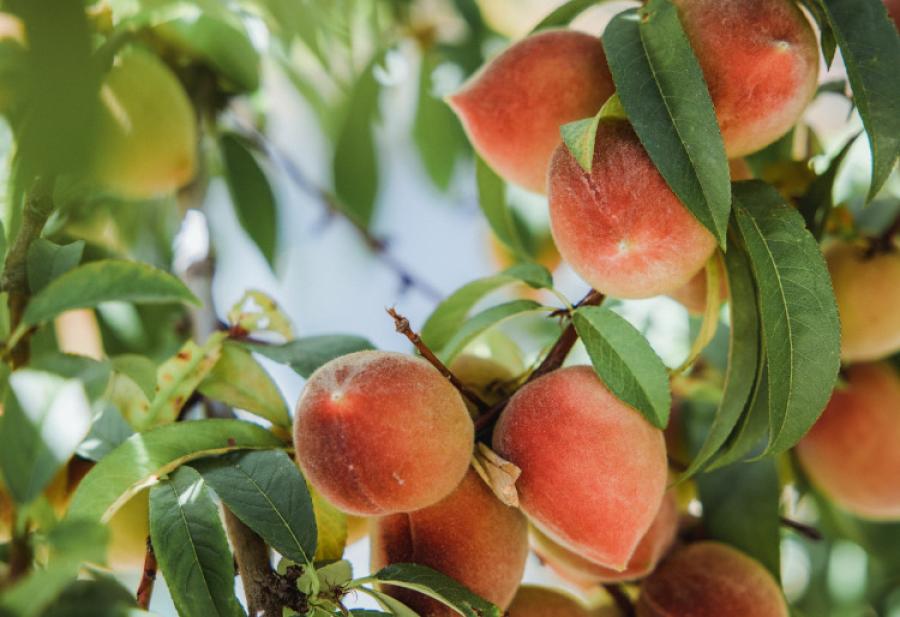Abiding in Christ & Bearing Fruit
Image

Reposted from Rooted Thinking.
When I was just a little guy, my parents planted a peach tree in our back yard. The tree grew as I grew. By the time I turned seven, the first few peaches appeared on that tree. I was so excited. However, the next year, we moved from that home. I never got to enjoy the fruit from that tree again, but someone did because that tree kept on bearing fruit.
- If you plant a peach tree, you have failed if the tree does not produce peaches.
- If you plant of field of wheat, you have failed if heads of grain do not appear.
- If you plant a grape vine, you have failed if it does not bear grapes.
In John 15, Jesus is about to leave His disciples. They will carry on Jesus’ work in His absence. As He walks from Jerusalem to the garden of Gethsemane on the night of His betrayal, Jesus guides the disciples past the grape vines. He uses the scene around them to teach His people the key to bearing fruit—we must abide in Christ.
In this passage, Jesus provides a logical progression:
- To glorify God and demonstrate that you are Jesus’ disciple, you must bear fruit. (15:8)
- To bear fruit, you must abide in Christ (15:4–5).
- To abide in Christ, you must keep in ongoing communication with Him (15:7–8).
In my next few posts, I will address each of these items. Here, we will begin with fruit.
What Is Fruit?
Jesus does not directly define what he means by fruit in John 15. The disciples probably made a connection between what Jesus was saying and passages like Isaiah 5:1–7 where God compared Israel to a vine that produced wild grapes. This wild fruit was rebellion against God, not the good fruit of obedience, justice, and righteousness.
However, in the New Testament, God applied the idea of fruit to many kinds of behavior:
- Christ-like character (Galatians 5:17–25; Ephesians 5:8–13; James 3:17–18; 2 Peter 1:3-11)
- Holiness (Romans 6:22)
- Praise to God (Hebrews 13:15)
- The results of giving to God’s work (Philippians 4:17; Romans 15:28)
- Converts through our gospel witness (John 4:35–36; 1 Corinthians 16:15; Romans 1:13)
- General good works and service to God (Colossians 1:10; 1 Timothy 5:9–10)
To summarize, fruit is the results of Christ in a believer, a changed life that God can use to influence others.1
How Critical is Fruit?
John 15 overflows with the importance of bearing fruit. The word fruit appears nine times in just sixteen verses. John 15:2 and 6 give strong warnings about the dangers of not bearing fruit. In addition, Jesus stresses that those who bear fruit are pruned and cleaned by the Word of God so that they produce more fruit (15:2–3). Furthermore, Jesus emphasizes a progression of (1) fruit (15:2,4), (2) more fruit (15:2), (3) much fruit (15:5, 8), and finally (4) fruit that remains (15:16).
Besides this, Jesus holds up fruit-bearing as a prerequisite for glorifying God, which is the chief end of man. If we want to live as Jesus’ disciples, we must bear fruit (15:8). I’m not sure John 15 could be clearer. Bearing fruit is essential to the Christian life.
Are You Bearing Fruit?
Let’s say you walk into an orchard in late spring. You come to a leafy tree that does not appear to have any fruit. You ask the farmer what kind of tree it is. “An apple tree,” he replies. You stare at the rather gnarled tree, searching in vain for evidence—an apple, a flower, or even a bud. Finally, near the top of the tree you spot a couple of small, shriveled apples. Yes! It is an apple tree after all.
You move on to the next tree in the orchard. No one has to tell you it is an apple tree because you are staring at the big, juicy apples. Some branches are so heavy with apples that the branches are being pulled to the ground. The abundant fruit convinces you immediately.
Which tree are you more like? Is your fruit obvious? Can people see God’s work in you? Does the fruit of your changed life bring glory to the One who transformed you? Are you unmistakably Jesus’ disciple?
1 To see examples of fruitful lives, read my upcoming missions devotional, Daring Dependence: A 31-Day Journey with those who Found Their Strength in God. This book should be released in the spring of 2022. This is a sequel to Daring Devotion.
MR Conrad Bio
Dr. Conrad serves in urban Asia. He, his wife, and their four children squeeze into a 700 square-foot apartment where he seizes rare moments of quiet to write amidst homeschooling, a cacophony of musical instruments, and the steady stream of visitors they so enjoy having in their home. He enjoys birding, board games, and basketball. He is the author of, so far, two books.
- 276 views


Discussion